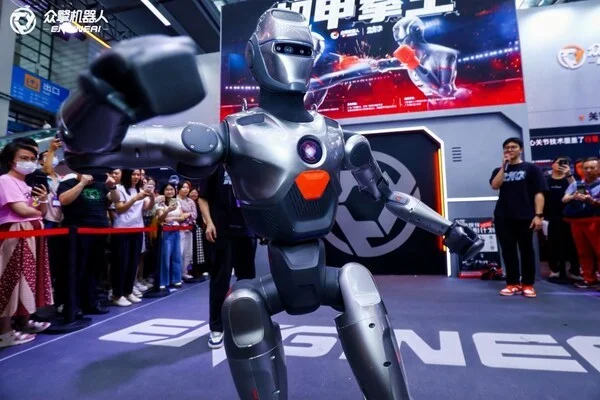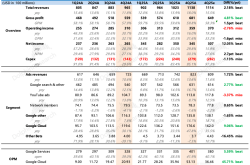Liu Qiangdong Bolsters Robot Revolution with Strategic Investments in Three Pioneering Firms
![]() 07/22 2025
07/22 2025
![]() 518
518

Text / Xuanxuan Ye
Art Design / Gu Qingqing
Produced by / Wangjie
On July 21, JD.com made a significant stride in the realm of embodied intelligence, leading investments in three leading humanoid robot companies: Zhongqing Robotics, Qianxun Intelligence, and Zhuji Power.
This year has witnessed a surge of financing in the embodied intelligence sector, with Wisdom Robotics and Unitree Technology racing towards IPO and a steady stream of startup funding announcements. However, JD.com's simultaneous bet on three industry heavyweights marks a unique milestone.
JD.com's foray into embodied intelligence began earlier this year. In March, Liu Qiangdong personally led a visit to the Robotics Lab at the Hong Kong University of Science and Technology. In May, JD.com acquired a stake in Wisdom Robotics, and in July, it launched the 'JoyInside' platform to integrate large model capabilities into robot hardware.
Now, with these three strategic investments, JD.com's robot strategy has officially embarked on an accelerated trajectory.
01 Why JD.com's Big Bet on Zhongqing, Qianxun, and Zhuji Power?
Each of the three companies invested in by JD.com boasts unique strengths but shares a common focus: equipping robots with perception, decision-making, and execution capabilities, the core of embodied intelligence.
Founded in 2023 by Zhao Tongyang, a former leader of XPeng's 'Pengxing Intelligence' team, Zhongqing Robotics is renowned for its robots' high dynamic motion capabilities, including front flips, running, and dancing. In January, a video of a Zhongqing robot navigating the streets of Shenzhen went viral, amassing over a million views.

Today (July 21), Zhongqing Robotics announced the completion of two financing rounds this July. The Pre-A++ round was led by Xinghang Capital, with XPeng Motors as the cornerstone investor, while the A1 round was led by JD.com, with participation from industry investors like CATL's Puquan Capital, Intime Group, and financial investors such as Huakong Fund, Guochen Fund under Dasun Capital, and Huangpu River Capital.
Although Qianxun Intelligence has been established for just over a year, it boasts a robust team. Founder Han Fengtao was once the CTO of industrial robot company Luo Shi Technology, and co-founder Gao Yang is an assistant professor at Tsinghua University, specializing in robot vision and machine learning.
In June, Qianxun unveiled its humanoid robot Moz1, equipped with a self-developed VLA model, capable of tasks like tidying desktops and discarding trash. Today, Qianxun Intelligence also announced the completion of nearly 600 million yuan in Pre-A+ round financing, led by JD.com, with follow-on investments from prominent institutions like China Internet Investment Fund, Zhejiang Provincial Science and Innovation Fund, Huatai Zijin, and Fosun RZ Capital.

Meanwhile, Zhuji Power confirmed it had received a strategic lead investment from JD.com. More commercialization-oriented, Zhuji Power's full-size humanoid robot is ready for mass production and will be available for sale in the second half of the year. Having previously received investments from giants like Alibaba and SAIC Motor, Zhuji Power now aims to explore cooperation possibilities with JD.com in retail and logistics scenarios.
While these companies adopt different technological approaches, they share a common goal: to bring robots to life, transcending mere robotic arms or wheeled chassis. JD.com values their potential for real-world applications.
02 JD.com's Ambition Extends Beyond Investment
JD.com's interest in robots transcends mere financial investment.
In March, JD.com established a specialized embodied intelligence department headed by Shen Hui, the former vice president of SenseTime Technology. In June, reports emerged that JD.com Retail had set up an 'Intelligent Robotics Business' department, reporting to the president of the 3C Digital Business Group.
These moves indicate JD.com's commitment to building internal robot research and development capabilities, while external investments aim to swiftly absorb the industry's cutting-edge technology.

While JD.com's logistics warehouses already use automated equipment, traditional robots operate solely based on preset programs. The breakthrough in embodied intelligence allows robots to adapt to more complex environments. For instance, future warehouse robots may no longer require manual annotation of shelf positions but instead 'see' goods and transport them autonomously, much like humans.
Beyond logistics, JD.com is also exploring consumer-grade robot applications. During this year's 618 shopping festival, sales of embodied intelligent robots on JD.com's platform surged 17-fold. AI pet dogs and educational robots have already found their way into households.
JD.com's ultimate vision may be to create a 'robot ecosystem'—both selling and utilizing robots while binding the industry's best companies through investment.
03 Commercialization Challenges for Humanoid Robots
JD.com's intensive investments are a microcosm of the broader industry.
Meituan has invested in at least five robot companies, including Unitree Technology and Yinhe Universal. Ant Group has bet on four OEM manufacturers like Xingchen Intelligence and Taihu Robotics, even establishing a dedicated subsidiary for embodied intelligence.
Capital's enthusiasm stems from technological advancements. Over the past year, humanoid robots' mobility has leaped forward, from unstable walking to running and jumping, and from mechanical repetition to understanding language commands—progress faster than anticipated.

However, challenges persist. High costs, short battery life, and limited application scenarios are common issues. Zhongqing's PM01 is priced at 188,000 yuan, unaffordable for most households. Qianxun and Zhuji Power's products also primarily target enterprises and research institutions.
Nevertheless, the entry of giants may accelerate commercialization. JD.com has logistics scenarios, Meituan a delivery network, and Ant Group targets household services. If these companies can help robots find rigid demand scenarios, the industry may experience explosive growth.
Conclusion: JD.com's Robot Chessboard
JD.com's investment in three humanoid robot companies in a single day sends a clear message: embodied intelligence is no longer a science fiction concept but a future that giants are betting real money on.
Zhongqing's motion control, Qianxun's VLA model, and Zhuji Power's mass production capabilities cover the crucial links for robots to land in the real world. JD.com's investment logic is straightforward—it seeks both technology and application scenarios.
In this race, internet companies bring data and scenario advantages, while startups contribute cutting-edge technology. The synergy between the two may propel robots into mainstream reality sooner than expected.
While the industry is still in its nascent stages, the cost, reliability, and applicability of robots need time to optimize. One thing is certain: JD.com and its competitors are determined not to miss out on this transformative wave.







